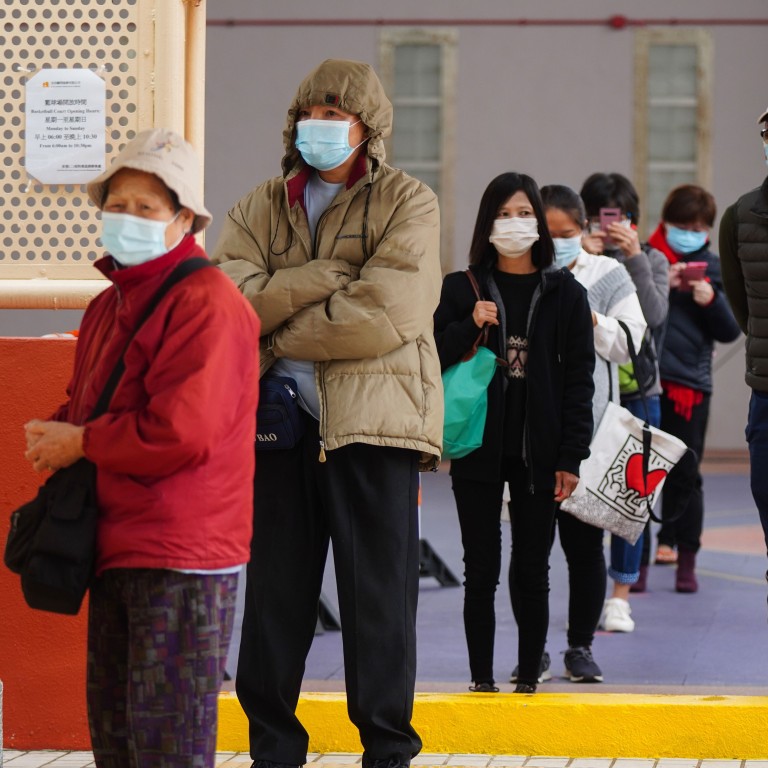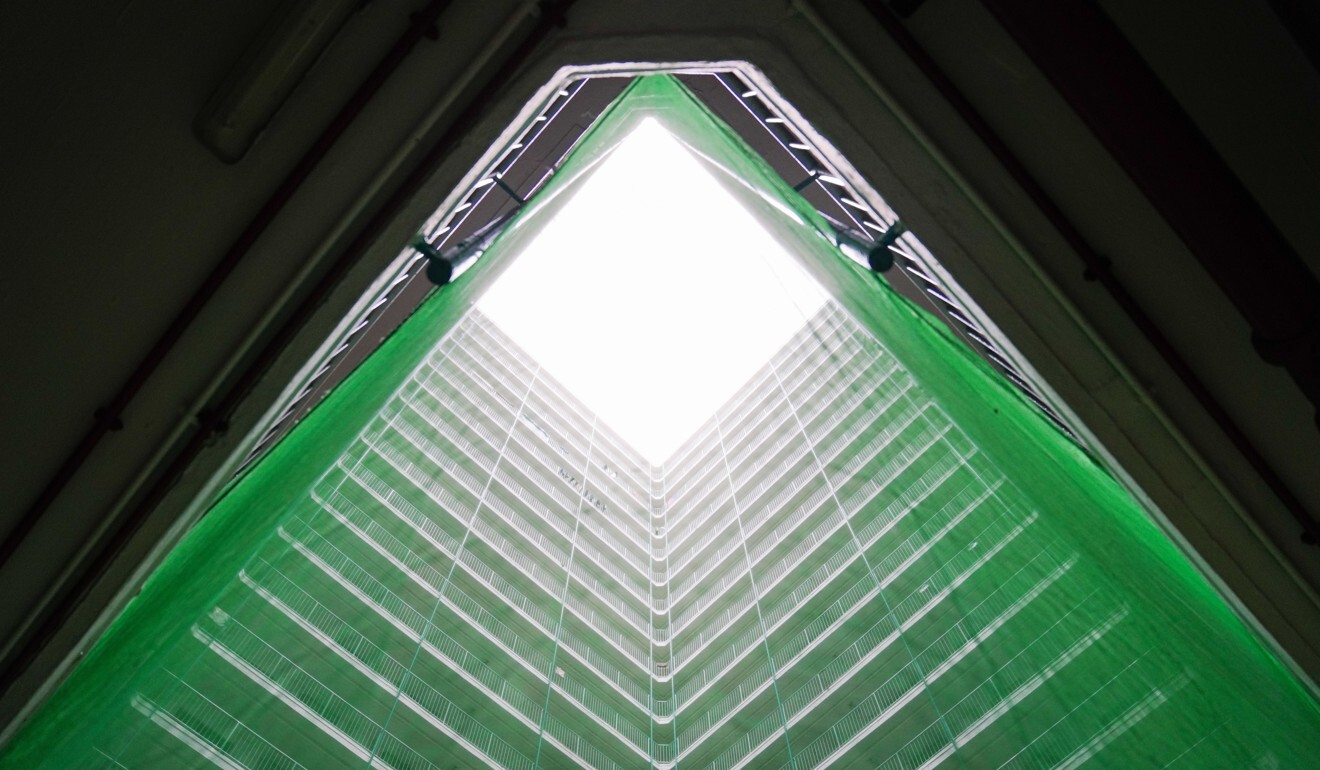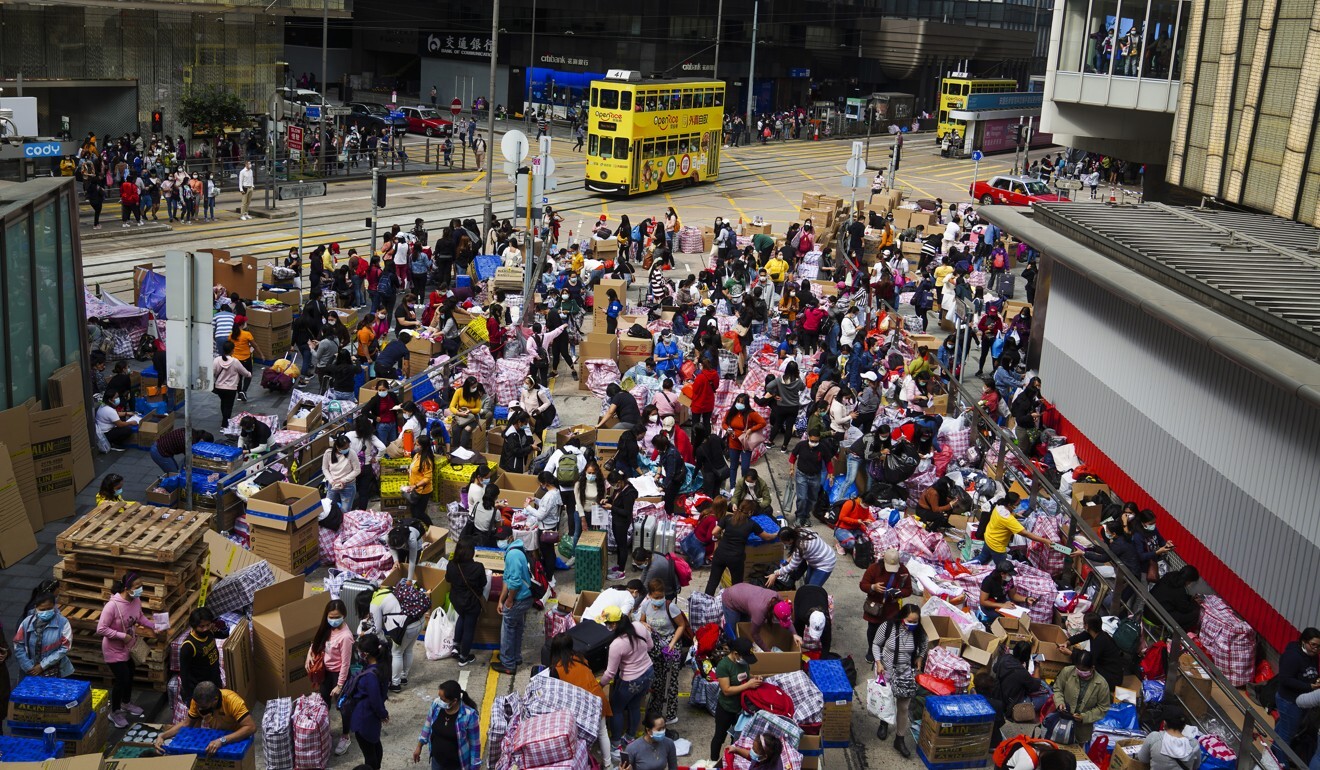
Hong Kong fourth wave: testing ordered for customers of luxury salon in Central after staff among 96 new Covid-19 cases confirmed
- Cluster adds to existing outbreaks at public housing estates that officials are racing to contain
- Health experts say instances of side effects from vaccine shots should be expected but they will be rare
The cluster adds to existing outbreaks at public housing estates that officials are racing to contain with mandatory screening and quarantine orders.
Undersecretary for Food and Health Dr Chui Tak-yi warned on Thursday that the latest data showed the transmission risk of the coronavirus remained high. Between December 10 and Wednesday, 37 per cent of local cases were untraceable, an increase from 30 per cent the week prior. Asymptomatic carriers made up 23 per cent of total infections in the past two weeks.
“There is still no sign of alleviation in the Covid-19 pandemic yet,” Chui said. “We urge the public not to stay in crowded or poorly ventilated places unless it is necessary, and do not arrange or join any gatherings.”
More people have been required to undergo mandatory quarantine, after four barbers working at Glow Spa and Salon at Silver Fortune Plaza on Wellington Street in Central were confirmed as infected, along with one patron. Authorities said anyone who had visited the spa since December 8 must undergo screening.
Professor David Hui Shu-cheong, a respiratory medicine expert from Chinese University and a government adviser on the pandemic, said transmission could have happened unwittingly in a salon.
“Would a barber remove his mask and drink water during breaks? Did he wash his hands, or did his hands contaminate the environment?” Hui asked, noting barbers were in close contact with customers during haircuts.
Customers should have their masks on at all times while in a salon, and wash their hands afterwards, he said, while food and drinks should also not be served on the premises.
Of the latest infections, 90 were locally transmitted, including 26 from unknown sources, a small drop from the 35 recorded on Wednesday. The remaining six cases were imported. More than 70 people tested preliminary-positive.
Outbreaks at residential blocks continued to grow. Ming Lai House at Choi Wan Estate in Wong Tai Sin, where some residents were ordered to enter quarantine on Wednesday night, recorded four more cases involving three flats numbered 33 and 34, pushing the size of the outbreak there to 10 people.

After inspecting the site on Wednesday, health experts said they suspected the route of transmission could be old drain pipes. All residents from units ending in the two numbers had been sent for quarantine. Earlier a unit there with a different number had also reported an infection.
Another resident at Block 8 of Kwai Shing West Estate in Kwai Chung was confirmed infected, taking the size of the cluster there to 17.
Outbreaks have also prompted the quarantining of some residents on the 32nd floor of Ming Yan Lau at Jat Min Chuen, in Sha Tin. Residents of Lung San House, at Lung Poon Court in Diamond Hill, meanwhile, have also been issued a mandatory testing order.
Experts worried as more middle-aged patients develop severe Covid-19 complications
Authorities took environmental swabs at Ming Lai House and Ming Yan Lau on Wednesday night, which Chuang Shuk-kwan, head of the communicable disease branch at the Centre for Health Protection, said may “shed some light” on the virus’ transmission route in the two buildings.
Asked if there was enough space in quarantine after the partial building evacuations were ordered, Chui, food and health undersecretary, noted that current quarantine capacity was more than 4,300 units, and that occupancy was at 46 per cent.
“I think there is enough quarantine capacity in the near future,” he said, adding that hundreds more units would be ready by the end of the month.
Meanwhile, authorities revealed another two patients had succumbed to the disease. An 80-year-old man, who suffered from a chronic illness, died on Wednesday in North District Hospital in Sheung Shui. An 89-year-old woman also died in Pamela Youde Nethersole Eastern Hospital.
There have been eight coronavirus-related deaths this week, bringing the overall total to 126.
A Yorkshire terrier belonging to the close contact of an infected person was also found on Thursday to have tested positive for Covid-19. The Agriculture, Fisheries and Conservation Department said the dog, which lived in Jordan, has not shown any symptoms.
With the confirmed infection tally now at 7,899, health experts said they hoped the city could administer Covid-19 shots as soon as possible, and sought to alleviate concerns over how the vaccine was being sourced.
William Chui Chun-ming, president of the Society of Hospital Pharmacists of Hong Kong, told a radio show that clauses exempting pharmaceutical manufacturers from legal liability over unregistered vaccines were nothing new.
“Most countries right now are granting vaccine manufacturers special emergency use rights rather than officially registering the drug, because pharmaceutical companies need to fully complete and analyse data in the third phase of clinical trials before they get registered,” Chui said.
HK$5,000 to take the Covid-19 vaccine? Lawmaker floats idea at Legco meeting
However, he said that in some instances, the government would set up a compensation fund to handle serious vaccine-related side effects and mishaps, noting that such measures were in place in Britain, the United States and Canada.
The Food and Health Bureau said on Thursday that defining and clarifying the legal liabilities surrounding the emergency use of Covid-19 vaccines could allow Hong Kong to use the products as early as possible. However, it added, that did not mean exempting pharmaceutical firms from all liability, including for quality assurance.
The Hong Kong government has secured the purchase of three vaccine batches, all of which are still in the third phase of clinical trials. Usually, manufacturers would need another one to two years to fully analyse the research data from a vaccine’s development before they could be registered, according to Chui.

A deal has already been reached to secure 7.5 million doses manufactured by mainland China’s Sinovac Biotech, and another 7.5 million by Pfizer-BioNTech in Europe. A deal for another 7.5 million shots from AstraZeneca is also in the works.
Chui, of the pharmacy society, said all three vaccines had their strengths and weaknesses, but stressed the public must be inoculated as soon as possible to reduce Covid-19 infections.
University of Hong Kong microbiologist Dr Ho Pak-leung, meanwhile, told a radio show that no one could accurately assess the side effects or risks associated with the new vaccines developed in Europe using new technologies.
Coronavirus: FDA says Pfizer vaccine vials hold extra doses, expanding supply
“Even if the vaccines could cause serious side effects, which I think there will be, they won’t be common,” Ho said.
Meanwhile, Covid-19 screenings are to be provided free at community testing centres to all 390,000 domestic workers in Hong Kong, after 12 infections involving helpers were discovered at a Tai Po boarding house.
Shek Pui-yin, an organiser for the Hong Kong Federation of Asian Domestic Workers Unions, said that employers of domestic helpers should help them access information on where and how to get tested under the government’s latest initiative.
“It’s hard to estimate how many domestic workers are willing to get tested, because many of them are not even aware of the latest announcement yet,” Shek told a radio programme, adding authorities should approach domestic worker groups with information in their native languages – primarily Tagalog and Bahasa Indonesia.
Shek described boarding houses as places at high risk of infection, as 15 to 20 domestic workers were often crammed into spaces no larger than 100 sq ft.



